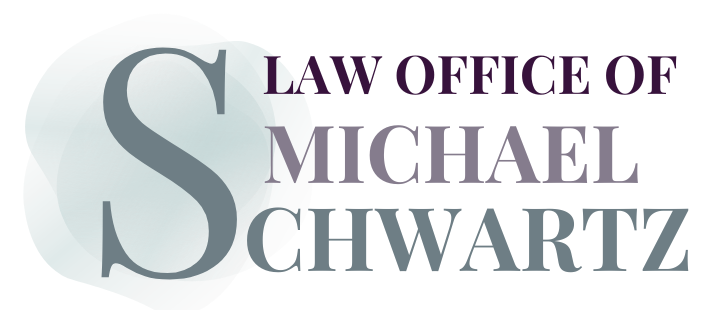Complete Guide to Chapter 7 Bankruptcy Exemptions
Filing for Chapter 7 bankruptcy can feel overwhelming, especially when you’re worried about losing everything you own. The good news? Bankruptcy exemptions exist specifically to protect your essential assets and give you a genuine fresh start. Understanding these protections can make the difference between losing your home and keeping it, or surrendering your car versus maintaining your transportation to work.
Chapter 7 bankruptcy, commonly called liquidation bankruptcy, allows individuals and businesses to eliminate certain debts by having a trustee sell non-exempt assets to pay creditors. While this might sound alarming, the reality is that most people who file for Chapter 7 bankruptcy keep the majority of their belongings thanks to bankruptcy exemptions.
These exemptions protect necessities like household goods, clothing, vehicles, and work tools, plus certain financial assets, including retirement accounts and insurance benefits. The key is knowing which exemptions apply to your situation and how to properly claim them during the bankruptcy process.
Before filing for Chapter 7 bankruptcy, it is important to consult a bankruptcy lawyer for guidance. Attorney Michael Schwartz has the legal skill to help you retain most of your financial assets.
Understanding Bankruptcy Exemptions
Bankruptcy exemptions are legal protections that shield specific assets from liquidation during Chapter 7 proceedings. Think of them as a safety net that ensures you won’t be left destitute after bankruptcy. These exemptions recognize that everyone needs necessities to rebuild their financial life.
The exemption system works by allowing you to protect up to a certain dollar amount of equity in various types of property. For example, if your state’s motor vehicle exemption is $4,000 and your car is worth $3,500, the entire vehicle would be protected. However, if your car is worth $8,000, the trustee might sell it, pay you the $4,000 exemption amount, and use the remaining $4,000 to pay creditors.
6 Common Exemptions in Chapter 7 Bankruptcy
1. Homestead Exemption
The homestead exemption protects a portion of the equity in your primary residence. This exemption varies dramatically by state — some states offer unlimited homestead protection, while others provide modest amounts. In Pennsylvania, for instance, there is no special homestead protection, so we utilize the federal standard. This means your exemption is a max of $27,900 for singles and $55,800 for a married couple filing jointly.
It’s important to note that the homestead exemption only protects your equity, not the entire property. If you have a mortgage, the lender’s secured interest takes priority over your exemption claim.
2. Motor Vehicle Exemption
Most states provide an exemption for at least one motor vehicle, recognizing that transportation is essential for work and daily life. The exemption amount typically ranges from a few thousand dollars to $4,000 in Pennsylvania.
If you own multiple vehicles, you may need to choose which one to exempt, or you might be able to use a wildcard exemption to protect additional vehicles.
3. Personal Property Exemption
This broad category covers household goods, furniture, appliances, clothing, and other personal belongings. States typically set limits on the total value of exempt personal property, though individual items rarely exceed these thresholds.
Jewelry, books, electronics, and family heirlooms often fall under personal property exemptions, though expensive items may exceed exemption limits and face potential liquidation.
4. Tools of the Trade Exemption
Professional tools, equipment, and instruments necessary for your occupation are often protected under tools of the trade exemptions. This includes everything from a mechanic’s tool set to a lawyer’s law books to a contractor’s equipment.
The exemption acknowledges that you require these tools to earn an income after bankruptcy and rebuild your financial stability.
5. Retirement Account Exemption
Most retirement accounts receive strong protection in bankruptcy. 401(k) plans, 403(b) plans, traditional and Roth IRAs, and pension plans are typically fully exempt from liquidation. This protection exists because retirement savings are considered essential for long-term financial security.
However, recent withdrawals from retirement accounts might not receive the same protection, so it’s crucial to avoid raiding these accounts before filing for bankruptcy.
6. Insurance Benefits Exemption
Various insurance benefits enjoy exemption status, including life insurance policies with modest cash values, disability insurance benefits, and health insurance proceeds. These exemptions recognize that insurance provides essential financial protection that shouldn’t be sacrificed during bankruptcy.
The specific protections vary by state and the type of insurance involved, making professional guidance valuable for understanding your coverage.
Eliminate Debt and Creditor Harassment by Filing for Chapter 7
If debt has become overwhelming, The Law Office of Michael Schwartz can guide you through your options, including Chapter 7 bankruptcy. We offer a free consultation to review your financial situation, explain how Chapter 7 works, and help you determine whether it’s the right solution for you. Because the bankruptcy court can take significant control over a debtor’s assets, it’s essential to understand which exemptions may allow you to protect your property before filing.
Attorney Michael Schwartz provides trusted bankruptcy representation for individuals, couples, and businesses in Bucks, Delaware, Philadelphia, and Montgomery Counties in Pennsylvania. With offices in Southampton, Perkasie, and Havertown, we make it convenient to get the legal help you need. Contact us today to schedule your free consultation and take the first step toward financial relief.


